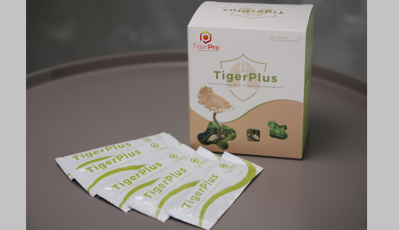Better sleep? Milk protein and L-theanine reduces time taken to nod off – Malaysia RCT

The supplementation has also increased the total sleeping time and sleep quality according to the Pittsburgh Sleep Quality Index (PSQI).
Conducted by researchers from University Tunku Abdul Rahman, the trial’s findings have been published in Nutrients.
“Given its beneficial effects without notable adverse events, it would be advantageous to use these nutraceutical ingredients to promote better sleep quality,” they said.
This is also said to be the first study that looks at the effect of both alpha-S1-casein tryptic hydrolysate and L-theanine.
Test material
The test material used in the trial is a formula that has been commercialised by Swiss firm LiveLife Bioscience.
Trademarked RLX2, the formula – containing the milk protein alpha-S1-casein tryptic hydrolysate – is sold as a finished consumer product under the brand Rilax in several countries, including Malaysia and Singapore.
The alpha-s1-casein tryptic hydrolysate is a bioactive decapeptide within a milk protein hydrolysate. Previous studies have shown that it has calming properties, such as reducing cortisol level and blood pressure.
L-theanine, on the other hand, is a type of amino acid found mainly in green tea and was found to maintain normal sleep, memory function etc. In healthy subjects, it has been shown to reduce heart rate and serum immunoglobulin A.
Study design
Forty-one subjects suffering from poor sleep quality were involved in this two-stage study, where they were randomised into the intervention or placebo group.
The intervention group was required to take a capsule containing 150mg of alpha-S1-casein tryptic hydrolysate and 50mg of L-theanine an hour before sleep for four weeks, while the other group took the placebo.
In the fifth week, both groups will go through a one-week washout period before crossing over to the opposite group to take either the test or placebo material for another four weeks.
Changes in their subjective sleep assessment was measured using the Pittsburgh Sleep Quality Index (PSQI). Their heart rate, blood pressure, and salivary cortisol were also measured.
The research was funded by Malaysia’s UTAR Research Fund and LiveLife Biosciences AG.
Time taken to fall asleep decreased
One of the key findings was that the intervention group had a shorter sleep latency – the time from lights out until the first epoch of any stage of sleep.
In stage one of the study, the intervention group’s sleep latency reduced significantly from 1 hour 40 minutes to 1 hour.
In the stage two, the intervention group’s sleep latency went down from 1 hour 15 minutes to 54 minutes.
In stage one of the study, the placebo group also reported a significant improvement in sleep latency – from 1 hour 29 minutes to 1 hour 6 minutes, but the researchers believe that this could be due to the placebo effect.
Total sleeping time increased
Second, total sleeping time had increased for the intervention group in both stages of the study.
In stage one, the intervention group’s total sleeping time significantly increased by 55 minutes from 5 hour 17 minutes to 6 hours 12 minutes.
In stage two, the intervention group’s total sleeping time increased by 37 minutes from 6 hours 6 minutes to 6 hours 43 minutes.
“The number of hours of actual sleep was significantly improved only in the supplement receiving groups, where they were able to sleep 55 and 37 min longer than before the treatment,” said the researchers.
PSQI score reduced
Third, PSQI score had decreased significantly in the intervention group.
The higher the score, the poorer the sleep quality.
The total score is 21 and a score of more than five is considered a sleep of poor quality.
In stage one, PSQI score of the intervention group was down from 9:00 ± 2.27 to 5.83 ± 1.54, while in stage two, the score also reduced significantly from 6.76 ± 2.39 to 4.95 ± 2.48 in the intervention group.
“The results suggest that the supplement can mitigate poor sleep quality and may also have an anxiolytic effect,” the researchers said.
They added that future study could be conducted on a larger scale, involving different demographics.
“The present report may pave the way for future investigation amongst specific populations like the elderly, adolescents, pregnant or lactating women or patients with comorbidities with different dosages, especially higher dosages for L-theanine and in comparison to the individual supplement [of either L-theanine or alpha-S1-casein tryptic hydrolysate],” they said.
Source: Nutrients
Effect of Alpha-S1-Casein Tryptic Hydrolysate and L-Theanine on Poor Sleep Quality: A Double Blind, Randomized Placebo-Controlled Crossover Trial
https://doi.org/10.3390/nu14030652
Authors: Kokila Thiagarajah



















